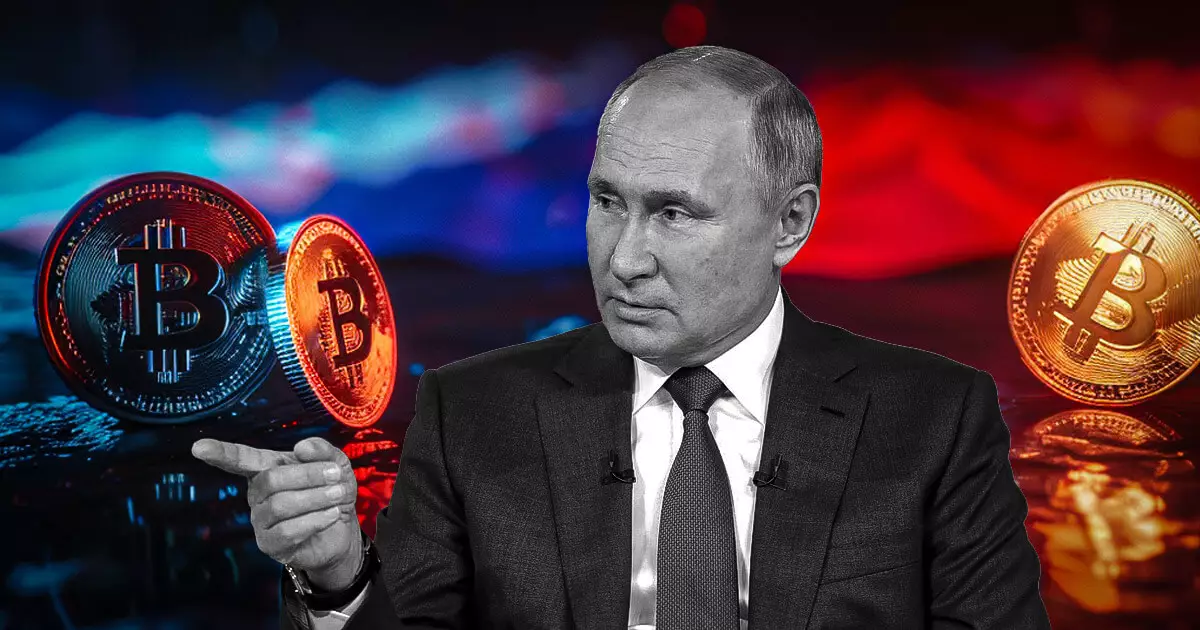In the recent discourse on digital currencies, Russian President Vladimir Putin has taken a bold stance, declaring Bitcoin (BTC) and other cryptocurrencies as inevitable forces in the future of finance. During the Investment Forum in Moscow, Putin articulated his vision of digital currencies not just as a means of investment but as essential instruments to combat systemic financial inefficiencies and enhance economic resilience. By proposing Bitcoin as a potential global reserve asset, particularly when contrasted with the dominance of the US dollar, Putin is signaling a clear shift in the geopolitical narrative surrounding currency and control.
Putin’s criticism of the US dollar is particularly pointed; he underscores how its dominance has been weaponized to further American political interests globally. The freezing of $300 billion in Russian reserves by Western nations following the onset of the Ukraine conflict exemplifies this issue. Such actions have led many nations, particularly those facing geopolitical tensions, to seek alternatives to the dollar—cryptocurrencies like Bitcoin being a prime candidate. In Putin’s view, the decentralized nature of Bitcoin makes it an attractive solution, as it operates beyond the reach of any single government’s control.
A notable aspect of Putin’s remarks is his assertion that “who can ban Bitcoin? Nobody,” suggesting an irrevocable trend toward the acceptance and use of digital currencies. This perspective reflects a broader understanding that technological innovation in finance will continue to evolve as individuals and businesses alike seek means to reduce costs and enhance transaction reliability. The legal groundwork laid in Russia—with cryptocurrencies now classified as property—demonstrates an official embrace of this digital shift. This legislation not only offers tax relief for crypto transactions but also signifies a strategic move to foster financial innovation even in challenging economic climates.
Cryptocurrencies are also gaining traction amid global conflicts, particularly in scenarios like the ongoing Russia-Ukraine war, where traditional financial systems are under strain. Digital currencies have emerged as important tools that enable individuals on both sides to circumvent conventional banking limitations, allowing for the continued movement of funds. This adaptability highlights an urgent need for alternative financial frameworks, fostering resilience in times of crisis.
Recent discussions at the BRICS summit have also illuminated the potential of cryptocurrencies to facilitate international trade and payments, offering an avenue to counter the influence of traditional Western financial systems. Putin’s call for cooperation in technological innovation among BRICS nations aligns with this vision, positing that digital currencies may bolster economic ties while offering more equitable financial solutions.
The implications of Putin’s statements are far-reaching, indicating not only a potential shift in the global economic structure but also challenging the established order of financial dominance. As Russia allows for the legal recognition of cryptocurrencies and aims to chart a new economic path, the global financial community must brace itself for potential disruptions caused by the increased adoption of digital currencies. With political climates rapidly changing, the rise of Bitcoin and its peers could very well redefine the future of global finance, steering it toward a more decentralized and diversified landscape.
















Leave a Reply